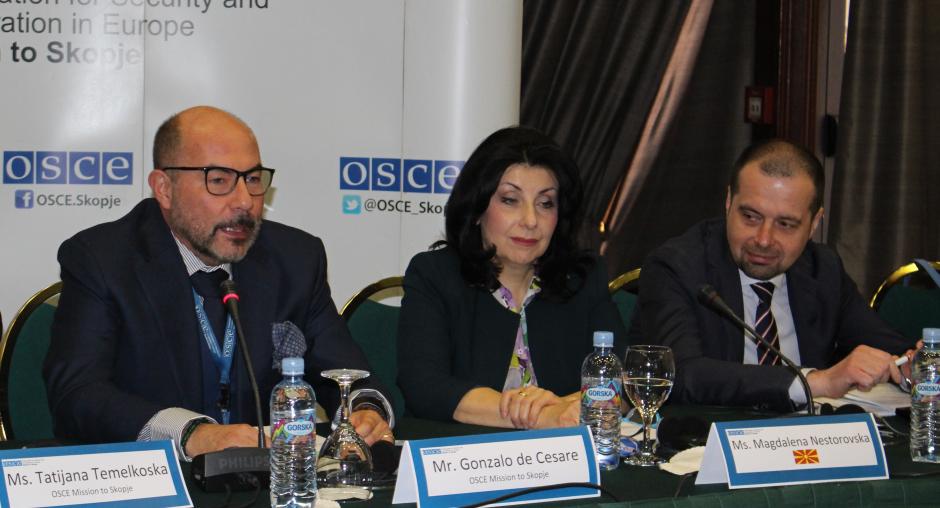First workshop on OSCE-wide identification guidelines for migrants and refugee victims of trafficking concludes in Skopje

Skopje, 28 March 2018 –The first in a series of OSCE workshops on the development of guidelines and a training module for better co-ordinated, harmonized and victim-centred identification of human trafficking cases among mixed migration flows concluded in Skopje today. The one-day event was organized jointly by the OSCE Office of the Special Representative and Co-ordinator for Combating Trafficking in Human Beings (OSR/CTHB) and the OSCE’s field operations in South-Eastern Europe.
Workshop participants included practitioners whose professional duties require daily interaction with people on the move in the context of the current migration and refugee crisis, including representatives of law enforcement bodies, migration agencies, public social services, civil society, international organizations and representatives of OSCE participating States.
They discussed how recommendations from a recent OSCE report, From Reception to Recognition: Identifying and Protecting Human Trafficking Victims in Mixed Migration Flows - A Focus on First Identification and Reception Facilities for Refugees and Migrants in the OSCE Region, can be translated into practice.
“Our recent needs assessment report on the identification of victims of trafficking in human beings within the current migrant reception frameworks in the OSCE region calls for a much stronger focus on this issue by all relevant stakeholders and agencies,” said the OSCE Special Representative and Co-ordinator for Combating Trafficking in Human Beings, Madina Jarbussynova. “This can only be achieved by developing uniform guidelines on anti-trafficking measures in humanitarian crises and by ensuring that all actors of relevance are effectively trained to apply them. Today’s OSCE workshop in Skopje is the first step towards achieving this.”
Noting the strong commitment of the authorities in Skopje to the implementation of the principle of immunity and to the establishment of a compensation fund for victims of trafficking, Magdalena Nestorovska, National Anti-trafficking Co-ordinator and Interior Ministry State Secretary also warned that “the closure of the Western Balkan Route has heightened the risks posed by organized criminal groups seeking to smuggle or traffic human beings”. “To address this challenge, we therefore began developing documents and operational activities which aid in the detection of potential victims of trafficking among migrants and which, we are proud to say, have served as an example for many countries in the region and beyond”, she said.
“The challenges related to migration, especially trafficking in human beings, call for a comprehensive and coherent response, where all OSCE structures and participating States have a substantial role to play,” said the Head of the Human Dimension Department of the OSCE Mission to Skopje, Gonzalo de Cesare. “In this light, an essential commitment of our Mission is to adapt to new challenges and the increased risk of human trafficking in the unfolding migration context, while remaining relevant to key concerns of our host country.”
The Head of the Department for Combating Trafficking in Human Beings at the Ministry of Security of Bosnia and Herzegovina, Stanislava Tanic, emphasized that Sarajevo “welcomes efforts made by the OSCE to reach joint practical solutions which could be adapted to the relevant legal frameworks of OSCE countries, in order to ultimately draft a concrete plan of identification and referral protocols for potential trafficking victims in mixed migration flows”.
The results of today’s workshop discussions will be complemented by further work conducted at similar events planned in Greece and Italy later this year
